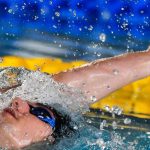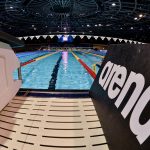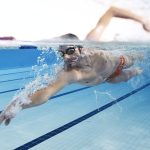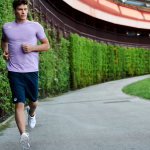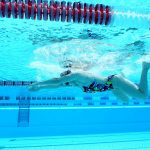Is there such a thing as a vegan swimmer?
Let’s see how a vegetable-based lifestyle can be reconciled with sport.
We have already given you a few tips about nutrition for swimming, but they were all for what we might describe as “omnivorous” swimmers. But nowadays more and more people are deciding to adopt a lifestyle that is animal-friendly on various fronts, including nutrition, or, in other words, veganism.
Over recent years there is a growing belief that sporting performance is absolutely reliant on proteins. This inevitably means vegans/vegetarians always get asked the question: “where do you get your proteins from if you do not eat meat?”.
In order to understand how performance and proteins are related, we need to realise that carbohydrates provide the main fuel for sports in general and for swimming in particular. And, as far as meat is concerned, luckily there are other vegetable-based foods that can provide the right amount of proteins.
As you will have now realised, swimmers have very definite needs, whether or not they are vegans: a balanced diet consisting mainly of carbohydrates and a relatively small amount of proteins and fats. The only difference with vegans is that all nutrients will be of vegetable origin.
The only thing a vegan swimmer needs to pay special attention to is varying the kinds of vegetables they eat as much as possible. Since they have less options for “filling their plates”, variation is vitally important for providing the body with all those the micronutrients it needs, such as vitamins, minerals and amino acids. Amino acids are the building blocks of proteins. There are 20 different types, 11 of which can be synthesised by our body and 9 need to come from food.
One of the benefits of a predominantly vegetable-based diet is definitely better digestion. Since the digestive process requires plenty of energy, eating less “heavy” foods as part of a vegetable-based diet will cause fewer problems in this respect.
If you have decided to follow a vegan diet, a useful tip is to combine together foods like cereals or flour with legumes to make your meals more tasty: an old-fashioned dish of pasta and beans or a risotto with courgettes are just two simple examples.
One minor thing worth noting: I am not writing all this to claim that a vegan diet is the ideal way to sporting performances of the highest level, neither am I stating the opposite. I would simply like to point out that you can be a vegan and a sports person. The important thing is to plan a varied diet; so my main tip is to consult an expert on nutrition.
In conclusion, if you are a vegan you have nothing to worry about, you can swim as many laps as you like without anything to worry about!
—————
Written by:
arena coaches
Swim coaches, trainers and experts will give you all kinds of tips for performing at your best in both training and races.
